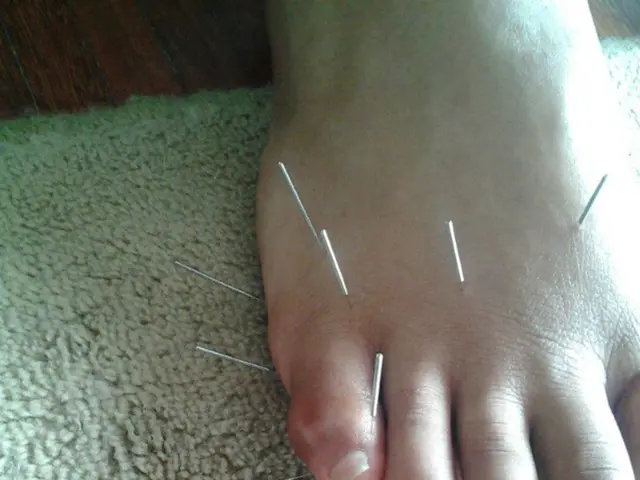Decreasing cervical cancer mortality rates along with screening rates fall
Updated Report:
Cervical cancer deaths in Davao City plummeted from 88 to 67 between 2023 and 2024, according to the City Health Office (CHO). Dr. Sharlene Tan, the district health physician at the CHO, shared this positive news during the ISpeak media forum at the City Mayor's Office on May 15, 2025.
However, Tan sounded the alarm over the dwindling number of women undergoing cervical cancer screenings. In 2023, 7,137 women got screened, but that figure dropped to 6,104 in 2024.
"Cervical cancer can strike women as young as 20 and as old as 70," Tan cautioned. "Yet most cases occur in women aged 40 to 50."
Tan emphasized the significance of the HPV (Human Papillomavirus) vaccine in preventing cervical cancer. The vaccine is free at local health centers for girls between 9 and 14 years old, who require two doses— six months apart.
While women between 15 and 45 can still receive the HPV vaccine, priority is given to younger girls. Older women looking to get vaccinated can seek help at private clinics or hospitals.
HPV vaccination is part of the CHO's school-based immunization program for Grade 4 female students. However, participation has been lackluster, mainly due to insufficient parental attendance at educational sessions. To tackle this issue, the CHO is boosting its efforts to encourage vaccination among girls aged 9 to 14.
Dr. Mary Lee Lim, a representative of the Philippine Obstetrical and Gynecological Society at the Southern Philippines Medical Center (SPMC), also pointed out that men can receive the HPV vaccine to curb virus transmission. Nevertheless, resources remain allocated primarily for vaccinating girls within the priority age group.
Lim underscored that cervical cancer is preventable, as it can be detected early through regular Pap smears and responsible sexual behavior. "Too many women postpone seeking medical help, and by then, the cancer has often progressed to advanced stages," she said. At that point, treatment options typically consist of chemotherapy and radiotherapy.
To promote early detection, the CHO offers Visual Inspection with Acetic Acid (VIA) at community health centers throughout the year. Since Pap smears necessitate a pathologist, VIA serves as a more convenient alternative, with positive results being referred to OB-GYN specialists at SPMC for further evaluation.
Tan highlighted that cervical cancer is primarily caused by HPV, a sexually transmitted infection. The disease often lacks symptoms in its early stages, but possible warning signs may include irregular spotting, bleeding between periods, postmenopausal bleeding, bleeding after sexual intercourse, or foul-smelling vaginal discharge. Nevertheless, these symptoms don't automatically mean a woman has cervical cancer, as they can be due to various other medical conditions.
- The government in the Philippines, specifically the City Health Office (CHO) in Davao, has successfully reduced cervical cancer deaths from 88 to 67 between 2023 and 2024.
- Dr. Sharlene Tan, a health official at the CHO, is concerned about a declining number of women undergoing cervical cancer screenings, from 7,137 in 2023 to 6,104 in 2024.
- Tan emphasizes the importance of the HPV vaccine, which is free and administered in local health centers for girls between 9 and 14 years old, in preventing cervical cancer.
- The HPV vaccine is part of the CHO's school-based immunization program for Grade 4 female students, but participation has been relatively low, mainly due to insufficient parental attendance at educational sessions.
- In addition to cervical cancer, the CHO also offers services focused on mental health, women's health, and overall health and wellness. For instance, the Visual Inspection with Acetic Acid (VIA) is provided at community health centers throughout the year for early detection of various medical conditions.







